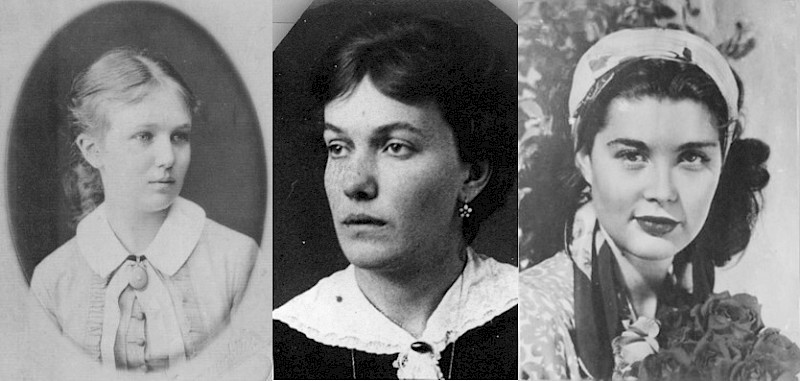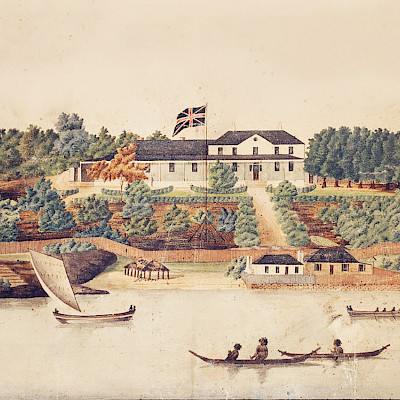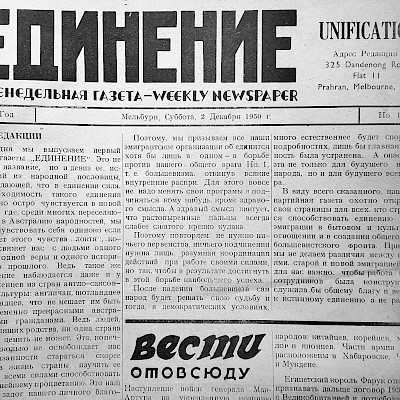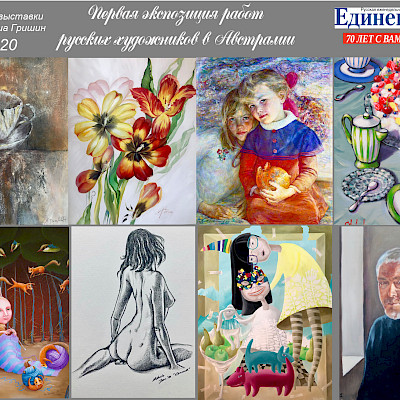
I recently attended a meeting of senior Russian scouts in Sydney. The meeting participants came to Australia at a young age after the Second World War. Most came from Harbin or Shanghai, and some from post-war Europe. These were the two main waves of emigration of Russian people to Australia in the 40s - 60s. Differing in some ways, but also similar in some ways, both had to go through a difficult path, which was influenced by events in Russia in the first quarter of the last century. I was interested in the fate of Elena Morosoff-Martin, who said that she was born in Belgium.
Elena promised to write about the history of her family. When I received numerous information, diaries, photographs, I was even a little confused. There was enough material for a whole book. However, I will try to retell the story of her family in a short newspaper article, which helps to better understand the history of Russia and Australia of the last century.
Elena was born in Brussels in August 1943. The roots of the family of his father, Alexei Alexandrovich, went to the strong trading city of Guryev, at the confluence of the Ural River into the Caspian Sea. Now oil is one of the main engines of the city’s economy, and in past years the main goods on which fishermen and merchants grew rich were sturgeon and black caviar, which were supplied to the royal courts not only of Russia, but also of many foreign countries. Successful merchants who know their worth and, it seemed, will continue their successful business for many decades to come, look confidently from the photographs of their grandfather and great-grandfather. However, 1917 came, followed by a civil war, the past life was broken, and during the troubled years, some of the heirs of the Russian merchants were deprived of their lives, while others were scattered far from their native places.
On the mother’s side, Nina Stroynovskaya, the family history is also known many generations ago. Once upon a time, the Spaniard Salvador Molas was invited to Russia to train naval officers. Apparently he taught well, for his son, Pavel Salvadorovich, and his grandson, Mikhail Pavlovich Molas, rose to the rank of rear admiral. At the age of 50, Mikhail Pavlovich became the chief of fleet staff under Admiral S.O. Makarov. Unfortunately, he died on the flagship battleship Petropavlovsk along with S. Makarov in 1904 during the Russo-Japanese War near Port Arthur, when the ship was blown up by a mine. In the Molas family, and the Amelung who related to them, there was an opera singer Alexandra Molas, and among the relatives was the composer Rimsky-Korsakov.
During the civil war, mom and dad's families leave Bolshevik Russia. Elena keeps amazing memories written by her dad's sister, 10-year-old Katerina, who together with her family during the civil war makes her way from Guryev to Petrovsk (Makhachkala), then to Tikhoretsk, Yekaterinodar, Poti and from there on a sailing boat gets to Constantinople. Along the way, her mother dies of Spanish flu, then dies her grandmother.
“My father and his sisters grew up in an orphanage for Russian children after their father decided he couldn’t care for them and they were rescued by a woman who collected children orphaned by the Russian Revolution.”
There is a well-known story that Red Cross worker Anastasia Kuzmina-Karavaeva created a shelter for orphans in Crimea. Having experienced personal tragedy herself, the loss of her husband and father, she made a vow to God to educate orphans. In 1920, the children were evacuated to Constantinople. There, the shelter was replenished with new children who arrived on ships without parents, for whom there was not enough space on the ship, as well as children of the wounded who died on the way. Then, with the help of the League of Nations, after long negotiations with the Belgian authorities, she manages to obtain documents for relocation to Belgium. The move took place in March 1923, she and the children moved to Brussels. It is likely that Elena's father and his sisters were in this shelter. And Elena’s grandfather, having sent his children to an orphanage, went to Harbin to earn money in 1923, and from there he came to Australia in 1926. The family would meet with him again after the war.
Here's what Elena says about her maternal family: “My grandmother became a nurse in the White Army. Here she met my grandfather. At the Red Cross fundraising ball, Alexander was his grandmother's partner. They got married, and my mother, also Nina, was born in 1920 in Crimea. Grandfather (Alexander Stroinovsky) was an officer, and they were still fighting when my mother was born in 1920. Women and children were evacuated to Constantinople. The grandfather was wounded, so he was also evacuated. France received them from Constantinople, where my mother’s two brothers, Svetoslav and Konstantin, were born. They lived in Toulouse and Lyon. Eventually my grandparents separated. The grandmother took the children to Belgium, where her aunt, Maria Molas, lived, who, when the revolution broke out, traveled around Europe and remained living in Belgium. In Brussels, Elena's mother and father met and got married in 1942, and a year later Elena was born.
Elena goes on to say: “When the war ended, my father’s father convinced my parents that he had a house for us and a job for my father in Australia. My parents collected some money and we emigrated. I was four years old, and my brother Alexander was 2. When we arrived in Australia, it turned out that there was no home for us and no work. Grandfather expected both parents to work and support him. We had to stay with his sister Maria Bolonkina in Coogee. Mom was shocked. I went to primary school in Marrickville. My mother told me that I learned English very quickly. I could already speak French and Russian. At home we mostly spoke Russian. My father started working at a factory. My mother could not understand why his salary was so small until she found out that my grandfather introduced my father to the SP bookmaker's office, my mother had to meet my father at the factory gate on payday.
In 1949 we were able to rent a house in the Frenches Forrest area. But it was only called that, in reality it was two rooms without running water and sewerage under a tin roof, where chickens used to be raised. When my mother wrote to her friends in Belgium about our life, no one believed it. Soon we had to move out from here too.
It is not surprising that after this my parents separated, and my mother, grandmother, brother Shurik and I moved to Fairfield. We rented housing from Natasha Seifulina, about whose 100th anniversary “Unification” recently published an article.
This is how life began in a new country. Many years have passed since then, life in Australia has changed, I fell in love with this country. But everything I said happened too. It may sound far-fetched, but I swear it's true."
Recorded by Vladimir KOUZMIN





































